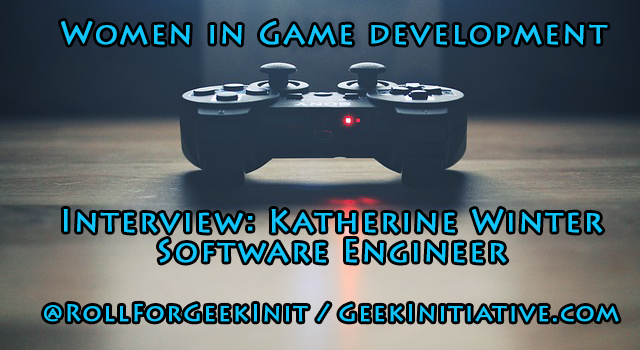It’s pretty obvious to anyone involved in gaming at large: mental health issues are common, and often unaddressed in the gaming community. With the proliferation of e-sports, professional gamers take gaming success to the next level, but sometimes they also bring poor mental health habits with them.
E-sports presents an opportunity for the gaming community to learn about and deal with mental wellness as a whole. Due to the popularity of e-sports and e-sports personalities, e-sports is a prime training ground for the de-stigmatization of mental illness among gamers.
Let’s take a look at how and why gamers might experience mental health issues and what the e-sports community can do to encourage mental wellness.
What Are E-Sports and E-Sports Leagues?
E-sports are competitive electronic gaming sport events. Typical competitions include teams of professionally trained and mentored gamers at PC console stations. E-sports tournaments have reached international popularity, with professional e-sports gamers receiving sponsorships, salaries and bonuses akin to the benefits enjoyed by traditional athletes.
For young gamers, e-sports can facilitate the development and nurturing of critical life skills, such as cooperative and competitive work, interest in STEM (science, technology, engineering, math) and can even set participants on a path to college.
Originally more casual, e-sports are now intensely focused, heavily involving time, money and popularity. E-sports leagues provide organized tournament experiences featuring professional gamers, similar to how professional sports leagues are organized.
While e-sports leagues can offer many opportunities for talented gamers, e-sports also magnifies a host of mental health issues prevalent in gaming communities.
Riot Games, the studio behind the massively popular League of Legends, intentionally created and propagated e-sports culture. They made the rules, the game and the league, skyrocketing e-sportsmanship to popularity in the last decade. From their engaging and interactive websites to their constant attention to fan culture, Riot Games has had a major impact on the development of this industry.
Pro Gaming Can Compound or Create Issues
As you can imagine, the life of a professional e-sports gamer includes a lot of stress and commitments. With sponsorships riding on success and all failures and wins broadcast worldwide, it’s easy to see why e-sports gamers might feel the pressure. Whether playing at home or competing in an arena, participating in a career so focused on winning can have a negative impact on mental health.
Mental health issues are not simply off-stage occurrences. The world watched as Justin “Plup” McGrath, professional e-sports gamer, experienced his first panic attack publicly. McGrath started taking medication to help him, and addressed the panic attack publicly following the tournament.
McGrath also experienced some visible support from a teammate, who put his arm around him during the difficult experience. Team camaraderie and bonding can be a benefit of traditional sportsmanship as well as team housing, where e-sports team members cohabitate and help each other better their habits. It’s this type of communication, expression of feelings and team focus that can help e-sports professionals better identify and cope with mental health struggles.
As phenomena in their industry, these elite e-athletes can benefit from discussing their feelings and experiences together, in a therapeutic group setting: but they can do even more by describing and disclosing that process, normalizing it for the gaming community.
Stress Management and Mental Wellness
Few have had to deal with so much stress, often at a young age, as e-sports professionals. While we understand burnout to be a common occurrence for any overworked individual, we as a culture need to start seeing e-sports gamers as professionals, devoting eight hours or more per day towards perfecting their craft in competitive environments.
The stressors of professional sports league participation again mirror traditional athletes’ challenges: medication like adderall is often abused to provide extended amounts of focus for gamers. Abuse or overuse of medication for job performance is often an indication of intense pressure and resulting addiction or other mental health issues.
With focus on constant gaming, sometimes e-sports gamers forget to eat or disconnect from their families. Combined with rigorous training and touring schedules, it’s easy to understand how some professionals are burning out or retiring in their 20s. Naturally, younger pros also have school responsibilities to worry about on top of their full-time professional gaming careers, too. That’s a lot of pressure, especially considering the average onset of mental health challenges occurs at age 11.
Additionally, women and other marginalized gamers frequently deal with threats and abuse, with 10% of women online gamers reporting rape threats. Exposure to these threats and other abuse encourages long-term mental health issues for many gamers, driving them to quit e-sports and deal with the effects of misogyny. Meanwhile, the perpetrators typically continue their toxicity in the gaming communities unchecked.
Rest and the Competitive Advantage
Professional gamer and Twitch streamer Steph Loehr advises speaking to gamers in their own language as a way of conveying mental health awareness. Loehr says that if gamers see a competitive advantage in resting and tending to their own mental health, they’re more likely to create positive mental health habits.
If taking care of the mind and body create a winning player, more players will do it. The challenge to that is the nature of professional gaming: e-sports gamers rise to fame fast, and they tend to be in-demand and fiercely devoted to training. Therefore, convincing e-sports professionals of both short and long-term performance benefits of good self-care is crucial to creating awareness and positive mental health practice among professional gamers.
More widely, gamers can check in on each other, educate themselves about toxic and abusive behaviors and set stringent gaming schedules to promote mental health wellness. The more e-sports professionals are open about doing the same, the greater the effect can have on the wider gaming community, as e-sports champions are visible role models.
Interested in exploring another type of game? Consider larp!




